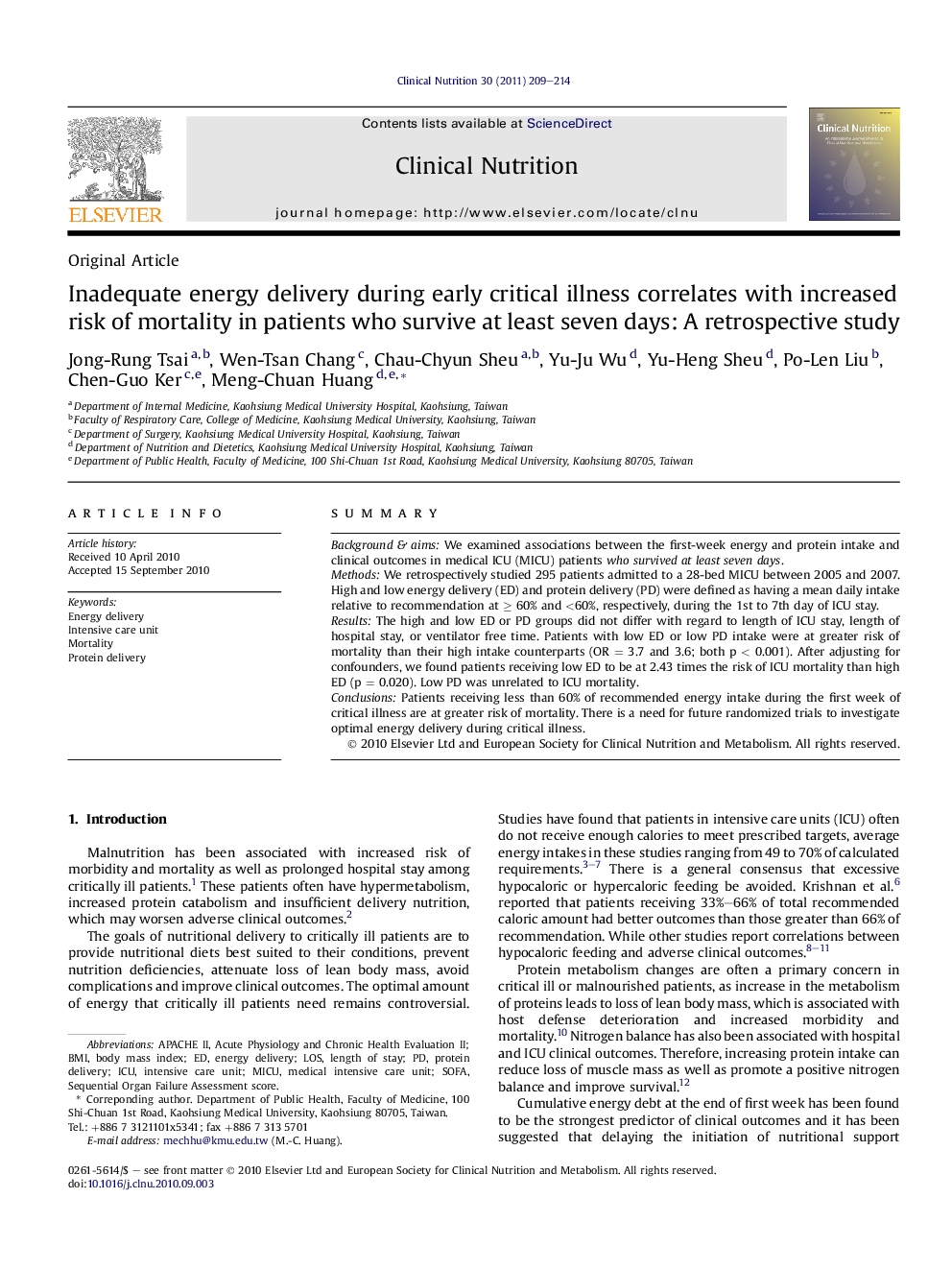| کد مقاله | کد نشریه | سال انتشار | مقاله انگلیسی | نسخه تمام متن |
|---|---|---|---|---|
| 2684132 | 1142726 | 2011 | 6 صفحه PDF | دانلود رایگان |

SummaryBackground & aimsWe examined associations between the first-week energy and protein intake and clinical outcomes in medical ICU (MICU) patients who survived at least seven days.MethodsWe retrospectively studied 295 patients admitted to a 28-bed MICU between 2005 and 2007. High and low energy delivery (ED) and protein delivery (PD) were defined as having a mean daily intake relative to recommendation at ≥ 60% and <60%, respectively, during the 1st to 7th day of ICU stay.ResultsThe high and low ED or PD groups did not differ with regard to length of ICU stay, length of hospital stay, or ventilator free time. Patients with low ED or low PD intake were at greater risk of mortality than their high intake counterparts (OR = 3.7 and 3.6; both p < 0.001). After adjusting for confounders, we found patients receiving low ED to be at 2.43 times the risk of ICU mortality than high ED (p = 0.020). Low PD was unrelated to ICU mortality.ConclusionsPatients receiving less than 60% of recommended energy intake during the first week of critical illness are at greater risk of mortality. There is a need for future randomized trials to investigate optimal energy delivery during critical illness.
Journal: Clinical Nutrition - Volume 30, Issue 2, April 2011, Pages 209–214